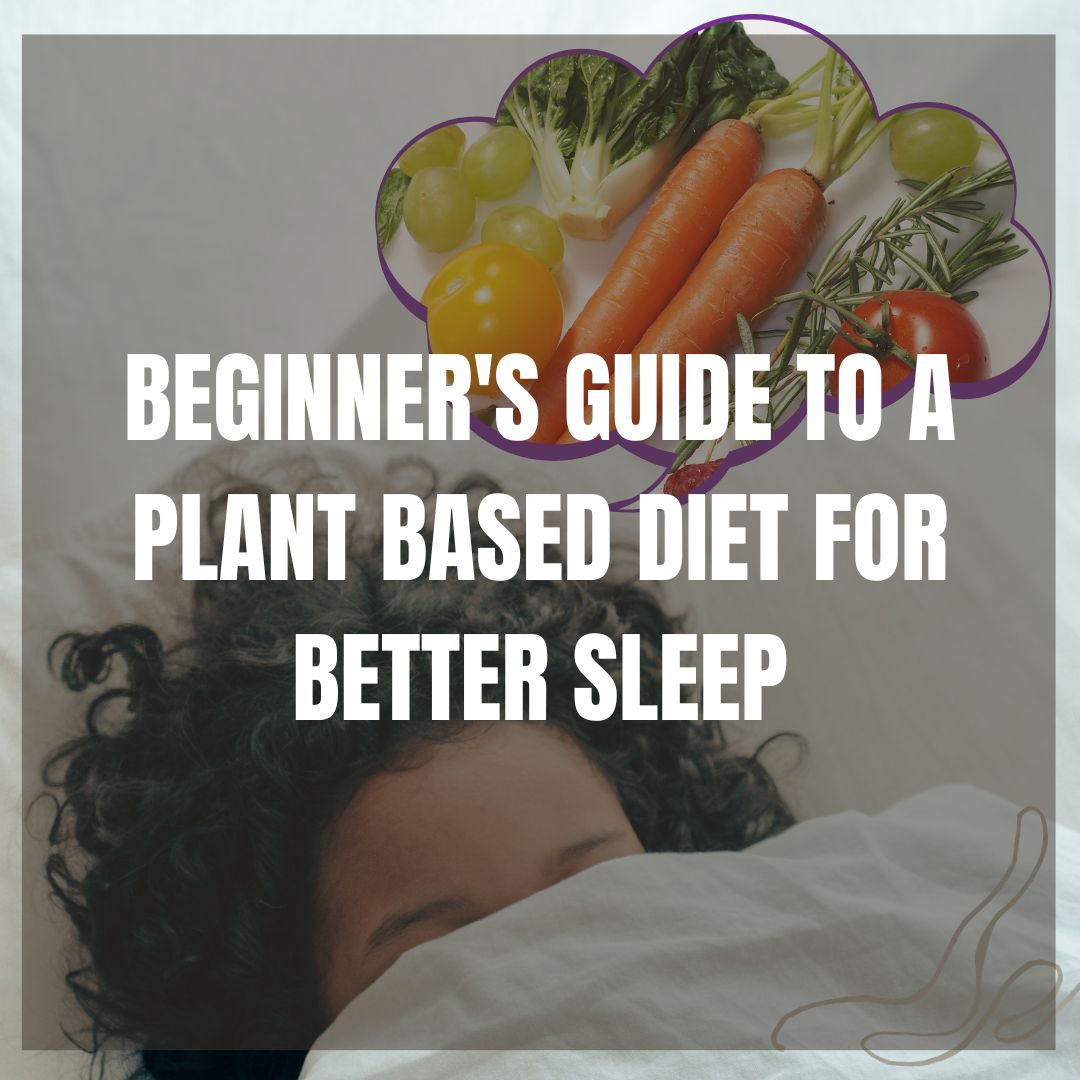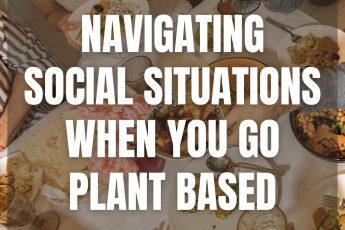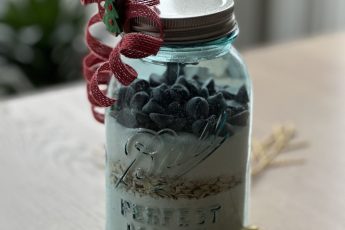We all know how great a good night’s sleep feels—refreshed, energized, and ready for the day. But did you know your dinner choices can affect how well you sleep? Emerging research shows a connection between a plant-based diet and sleep. The foods we eat can influence how restorative our rest is, and better sleep can help us make healthier food choices during the day. In this article, we’ll explore what the science is revealing and share practical ways to use a plant-based diet and sleep to support better rest.
Plant-Based Diet and Sleep: What the Science is Saying
A recent mini-review from the National Institutes of Health, THE IMPACT OF PLANT-RICH DIETS ON SLEEP, pulled together a wide range of studies and found some interesting patterns. Here are a few highlights:
- Diets high in saturated fat were linked to daytime drowsiness, while fiber-rich diets (beans, oats, and veggies) were tied to better sleep quality.
- Plant compounds like tryptophan, polyphenols, and isoflavones may help regulate sleep cycles.
- People who follow plant-rich diets may have a lower risk of sleep apnea and less daytime sleepiness.
- Higher intake of fruits and vegetables was associated with longer sleep duration and fewer sleep problems.
- Diets rich in whole plant foods may improve overall sleep efficiency by supporting a healthy gut microbiome.
The article highlights several ways that food choices can influence sleep. It’s worth a deeper, more detailed read if you want to dive into the science.
Real-World Insights: What to Eat for Better Sleep
FORKS OVER KNIVES takes a practical look at how diet impacts sleep, and their guide WHAT TO EAT FOR BETTER SLEEP offers some interesting takeaways. People who eat more whole plant foods – fruits, vegetables, whole grains, legumes, nuts, and seeds – tend to experience better sleep quality, fewer disturbances, and improved sleep efficiency (the percentage of time in bed actually spent asleep).
Some standout findings include:
- Beans are bedtime heroes: Each serving of beans per 1,000 calories was linked to a 55% higher sleep efficiency.
- Whole foods over processed foods: Diets low in saturated fats and refined sugars and high in fiber were consistently associated with better sleep.
- Consistency matters: Eating balanced plant-based meals throughout the day helps stabilize blood sugar and supports deeper, more restorative sleep.
Small, consistent changes, like adding more legumes, fruits, and vegetables, can make a noticeable difference in sleep quality.
How Plant Foods Support Better Sleep
So why does a plant-based diet and sleep quality go hand in hand? Here are a few reasons that keep coming up:
Anti-Inflammatory Power
Chronic inflammation can interfere with sleep. Eating anti-inflammatory foods, like fruits, vegetables, and whole grains, provides antioxidants that reduce inflammation and support better sleep.
Digestive Support
A happy gut supports better sleep. Fiber-rich foods keep digestion smooth and feed a healthy gut microbiome, reducing middle-of-the-night wakeups.
Blood Sugar Balance
Spikes and drops in blood sugar can trigger stress hormones that wake you up. Whole grains, sweet potatoes, and legumes help maintain steady blood sugar, keeping your body calm through the night.
Serotonin and Melatonin Boost
Tryptophan, found in bananas, oats, chickpeas, nuts, seeds, and tofu, is the building block for serotonin and melatonin. These hormones regulate relaxation and sleep, making tryptophan-rich foods a natural sleep support.
Magnesium for Relaxation
Magnesium helps calm the nervous system and relax muscles. Leafy greens, nuts, and seeds are excellent sources, promoting a sense of calm that makes it easier to fall asleep and stay asleep.
Putting It All Together
All of these benefits – anti-inflammatory effects, digestive support, blood sugar balance, hormone regulation, and magnesium’s calming influence – show how plant foods can directly support better sleep.
Practical Plant-Based Diet and Sleep Tips
Here are some simple ways to put the science into action:
- Eat balanced meals and snacks throughout the day: Stabilizes blood sugar and prevents nighttime wake-ups.
- Avoid heavy or sugary meals before bed: Helps your body wind down naturally.
- Limit caffeine and alcohol in the evening: Reduces disruptions to sleep cycles.
- Stay hydrated: Supports digestion and comfort, but reduce fluids a couple of hours before bed.
- Include sleep-supporting foods: Walnuts, almonds, kiwi, and tart cherries are rich in magnesium, tryptophan, and melatonin precursors.
- Create a relaxing bedtime routine: Reading, gentle yoga, or meditation signals to your body that it’s time to rest.
Even small changes alongside regular plant-based meals can improve sleep quality and leave you more energized.
A Day of Eating for Better Sleep
Here’s an example of a full day of meals that incorporates sleep-supporting plant foods:
- Breakfast: Overnight oats with banana slices and walnuts provide fiber, magnesium, and tryptophan to help start serotonin production.
- Lunch: Quinoa salad with chickpeas, spinach, and colorful veggies stabilizes blood sugar and delivers antioxidants.
- Snack: Kiwi or a handful of almonds offer melatonin precursors and magnesium for a gentle afternoon boost.
- Dinner: HEARTY LENTIL SOUP with steamed leafy greens combines complex carbs, fiber, and magnesium to help your body wind down.
Even small tweaks, like adding a kiwi or swapping in lentils, can make a meaningful difference in sleep.
Top Plant-Based Foods to Support Sleep
Mixing and matching these sleep-friendly foods can enhance your nightly rest:
- Walnuts: Melatonin and omega-3s; snack or toss into oatmeal and salads.
- Pumpkin Seeds: Magnesium-rich; sprinkle on veggies, salads, or snack by the handful.
- Leafy Greens (Spinach, Kale): Magnesium and calcium; add to smoothies, soups, or sautéed dishes.
- Chickpeas: Tryptophan-rich; use in salads, stews, or hummus.
- Oats: Complex carbs + tryptophan; breakfast or evening snack.
- Bananas: Potassium and magnesium; eat alone, in smoothies, or on oatmeal.
- Kiwi: Antioxidants and serotonin precursors; slice into yogurt or oatmeal.
- Herbal Teas (Chamomile, Lemon Balm, Peppermint): Signal to your body that it’s time to wind down; sip 30–60 minutes before bed.
Bringing It All Together
Sleep is one of the most important factors in overall health. The foods you eat can play a big role in how restorative your rest is. Research on a plant-based diet and sleep shows that fiber, antioxidants, and key nutrients support deeper, more restorative sleep.
Pairing this knowledge with practical habits, balanced meals, mindful snacking, limiting caffeine in the evening, and keeping a consistent bedtime, makes it easier to turn benefits into results. Adding sleep-supporting meals and top plant-based foods gives your body the tools it needs to relax, regulate hormones, and rest deeply.
Even small changes, like a handful of pumpkin seeds or a kiwi before bed, can make a noticeable difference. By combining these dietary choices with healthy routines, you support better sleep and overall wellness.
Embracing a plant-based diet and sleep–friendly approach doesn’t have to be complicated. Simple, consistent choices can help you wake up refreshed, energized, and ready to take on the day.






